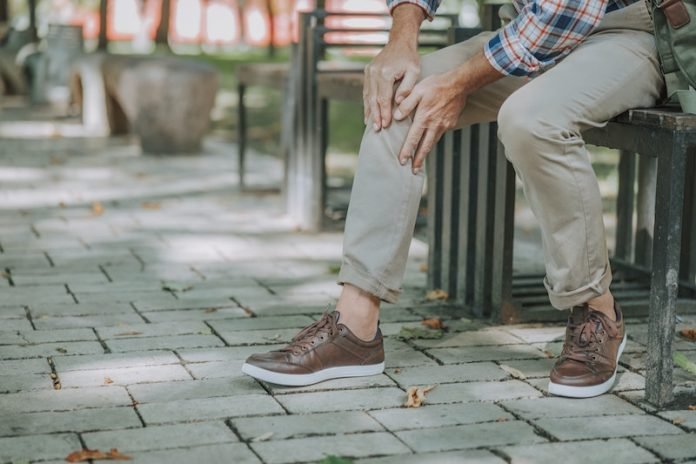
The Everyday Struggles of Knee Pain
Most of us have been active in some way or another throughout our lives, whether it’s through walking, running, or even just getting up and down from a chair.
Over time, all this activity can take a toll on our knees. The smooth tissue that cushions the knee bones, known as cartilage, can wear down, leading to a condition called osteoarthritis.
This can cause a lot of pain and make moving around hard, affecting your quality of life. Sometimes, a knee replacement is not an option due to other health issues or can even cause more pain and problems.
Introducing Genicular Artery Embolization (GAE)
For those looking for relief from knee pain, a new procedure called Genicular Artery Embolization (GAE) might be the answer.
Unlike other treatments that focus on fixing the worn-out cartilage, GAE aims to lessen the swelling and pain around the knee joint itself.
Here’s how it works: A doctor called an interventional radiologist uses advanced 3D imaging to locate the areas in the knee that are inflamed.
Then, a tiny tube called a catheter is inserted into an artery in your upper thigh and guided down to your knee.
Small particles are then released into the blood vessels to cut down the blood supply to the inflamed areas, which reduces swelling and pain.
The great part? You can go home on the same day you get the procedure and start getting back to your usual routine within a few days as the swelling goes down.
Why GAE Might Be Right for You
One of the big pluses of GAE is that it can lessen the need for strong painkillers like opioids and other anti-inflammatory medicines, which can be addictive and harmful in the long run.
While it won’t fix your damaged cartilage, GAE can help improve your movement and reduce pain.
This makes it a good option for those who can’t get a knee replacement or haven’t found relief from other treatments like injections or physical therapy.
If you’re dealing with ongoing knee pain, it’s worth asking your doctor if GAE could be a fit for you.
Overall, GAE offers a promising way to manage knee pain with fewer risks and a quicker recovery time.
It might not be a complete cure, but for many people, it could be a step in the right direction toward a more active and less painful life.
If you care about pain, please read studies about vitamin K deficiency linked to hip fractures in old people, and these vitamins could help reduce bone fracture risk.
For more information about pain, please see recent studies about what you need to know about headache pain, and results showing scientists make weak recommendation for medical cannabis for chronic pain.
Follow us on Twitter for more articles about this topic.
Copyright © 2023 Knowridge Science Report. All rights reserved.



